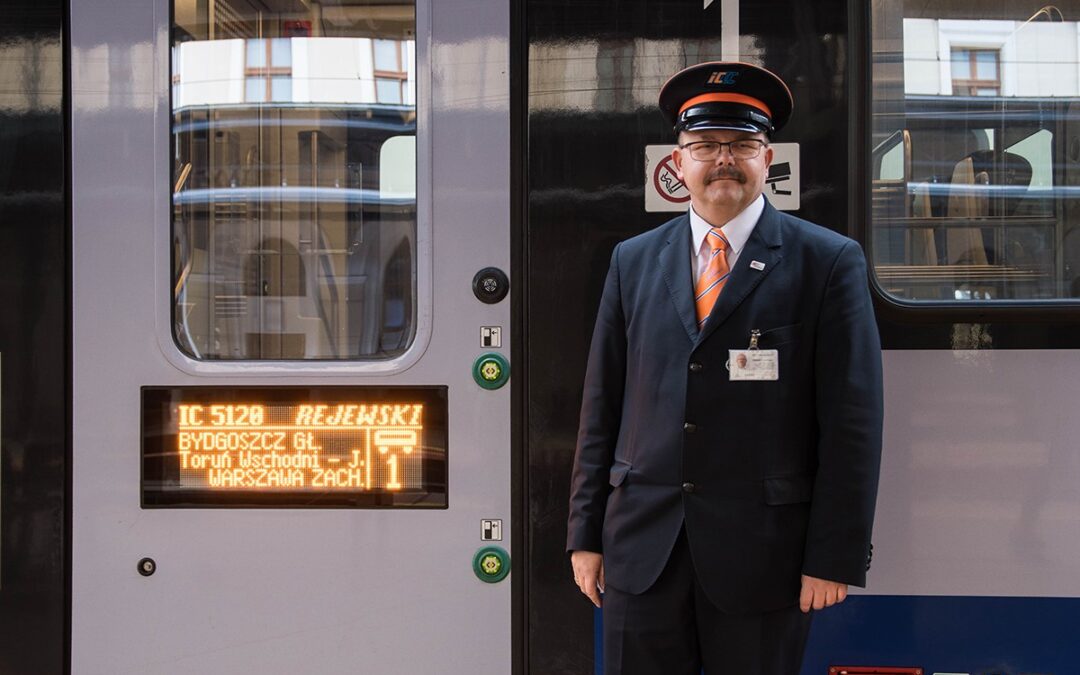Poland’s state rail operator PKP Intercity has triggered controversy after it began offering free meals during work to female conductors but not to male ones.
However, the firm says it is simply complying with a regulation that requires employers to offer meals to staff if they burn a certain number of calories during work, but with different levels set for men and women. The government’s equality minister has promised to look into the issue.
On Wednesday, a group called the Association for Boys and Men, a group that aims to “improve men’s well-being by influencing public policy”, shared an image of a PKP document informing employees that, from 1 January this year, female train managers and conductors are entitled to free meals and drinks.
“Are only women really entitled to meals? Why?” asked the group, which said that it had written to the firm asking for clarification.
Napisaliśmy do @PKPIntercityPDP z prośbą o wyjaśnienie: czy naprawdę posiłki przysługują tylko kobietom? Dlaczego?
Będziemy informować o odpowiedzi. pic.twitter.com/v46Wzb84CY
— Stowarzyszenie na rzecz Chłopców i Mężczyzn (@schmorgpl) January 10, 2024
In a response on X (formerly Twitter), PKP wrote that for many years it had been providing maintenance workers with meals but that at the start of this year a new government regulation entered force requiring conductors to also receive such meals.
The relevant rules stipulate that the meals must be provided to employees performing work involving physical exertion that results in the burning of over 2,000 calories for men or more than 1,100 for women during a shift.
The firm said it had commissioned research from the Institute of Occupational Medicine which had found that, while female conductors on average burned more than 1,100 calories at work, for men the figure was below 2,000. “Therefore, in accordance with the regulation, women became entitled to receive meals.”
Od wielu lat są wydawane posiłki dla pracowników obsługi technicznej pociągów, czyli pracowników warsztatowych, rzemieślników, rewidentów itd. Dla drużyn konduktorskich obowiązek wydawania posiłków wszedł od 1 stycznia rozporządzeniem Rady Ministrów ws. profilaktycznych posiłków…
— PKP Intercity (@PKPIntercityPDP) January 10, 2024
In response, the Association for Boys and Men said it had asked PKP Intercity to make the research available under a request for public information.
PKP also announced that it would conduct a survey of its staff to let them express their thoughts on the issue and to better understand their needs. The results would be used to “modify current activities in the field of providing meals and drinks”, said the firm, quoted by the Gazeta Wybrocza daily.
Katarzyn Kotula, the equality minister in Poland’s new government, which came to power last month, also commented on the issue. She announced that she would ask the labour ministry for information on the legislation requiring certain employees to be provided with food and drink, which was first introduced in 1996.
This would be used to consider “a possible update of these requirements”, wrote Kotula, who also said that she was in contact with the Confederation of Railway Trade Unions about the issue.
Szanowni Państwo. W związku z sytuacją dot wydawania posiłków drużynom konduktorskim w @PKPIntercityPDP podjęłam następujące działania:
Prześlę zapytanie do @MRPiPS_GOV__PL w celu analizy wymogów ilościowych w zakresie zapewnienia pracownikom profilaktycznych posiłków i…
— Katarzyna Kotula (@KotulaKat) January 10, 2024

Notes from Poland is run by a small editorial team and published by an independent, non-profit foundation that is funded through donations from our readers. We cannot do what we do without your support.
Main image credit: PKP Intercity

Alicja Ptak is deputy editor-in-chief of Notes from Poland and a multimedia journalist. She has written for Clean Energy Wire and The Times, and she hosts her own podcast, The Warsaw Wire, on Poland’s economy and energy sector. She previously worked for Reuters.



















